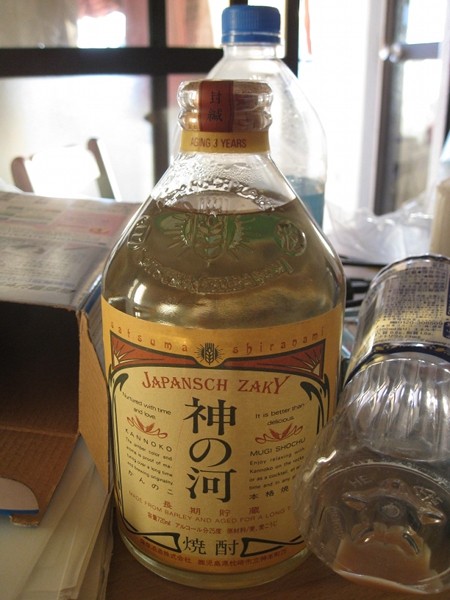comment to 10 Misconceptions about free will

alcohol may alter brain states
For those who are interested there is a discussion about determinism and freedom, free will, privacy etc. at the blog backreaction following a post with the title: 10 Misconceptions about free will, which I found problematic. If you want to know more you may read my comment also after the klick.
The comment is partially based on an earlier comment from Sept. 14, 2011, so I will cite this comment here as well:
nad said:
Sabine wrote:
“If somebody’s decisions are determined by somebody else’s decisions, then this just begs the question whether that somebody else has free will. I also don’t know why this has something to do with whether there is pure randomness, for if something is random you’re not making any choice either.”
In school, in the subject “ethics” we had one semester under the theme “freedom and determinism”. A lot of time there went into agreeing on terms, sometimes without positive result. So I am a bit hesitating to start discussing about the term free will itself. That is the notion of free will is rather fuzzy. But sometimes one can eventually also find some kind of “fuzzy agreements”. Free will is for me here the free will of an individuum. That is you have the notion of the free will of peoples a.s.o. but this is not I am discussing about. (Free) Will means here for me that an individuum is having some internal brain state upon which it makes some decisions (I understand that amongst others you want to discuss wether it is per se possible to predict or not predict the decisions of that individuum given its brain state, but for the following this is not important). Let’s for simplicity assume the decision is to pick a cereal. If someone else is doing this decision for you (like via the previously mentioned hypothetic device) or if the decision is completely random (via coupling with a random device) then this person doesn’t make his/hers decision based on his/hers own brain state. One could infer that the brain state is just altered by someone so that the decision is -after the alteration- then still made on an internal brain state of the indivduum. Thats why I had added the word “instant” because brain states which are radically altered within the instant of decision are in my opinion not to be accounted for as “original” brain state of the individuum.
The usual from-outside alteration of the brain state takes time, in particular it is at least causal. In this context it is an interesting question to which extend non-para-phenomena (like by using electric fields) can be used to alter brain states.4:00 AM, September 14, 2011
Now my comment to the 10 Misconceptions:
gowers wrote:
“You appear to regard free will as incompatible with determinism, more or less by definition. That’s OK, but I would contend that what you define as free will is not what actually interests people.”
Sabine wrote:
“It’s not a terminological dispute. Just do yourself the favor and eat my definition. Use a different word if you like. That renaming doesn’t make the conflict go away.”
and
“a) If your future decisions are determined by the past, you do not have free will….”
It might be good to have a better distinction between the terms “will” and “free”.
For me (see also my comment at Sept 14 (it seems there are no permalinks to individual comments)) a “will” of an individual is something which is based on its brain states. The word “free” is a description of the “will” itself.
Using the word “free” or “freedom” brings often trouble into discussions because it is rarely that people mean something like an “absolute freedom” but mostly they implicitly mean a “freedom relative to” something. And tons of philosophers (see e.g. Goldene Regel, categorical imperativ, Freiheit ist immer Freiheit der Andersdenkenden) seem to have rather questioned wether one should at all take absolute freedom as such much into consideration.
You seem to have rather some kind of “absolute freedom” in mind as being the opposite of (absolute) determinism.
Sabine wrote:
“I acknowledge that there are other ways to define free will. Some people for example want to call a choice “free” if nobody else could have predicted it, but for what I am concerned this is just pseudo free will.”
I agree with you that the above definition doesn’t sound too convincing for a definition of what “free” could mean in the context of “will.” That is monitoring and predicting a will sounds more like a question of privacy, which may of course influence decision making, but a question which arises here is for example: to which extend does it influence?
Hence if one would want to look for a senseful definition for the term “free will” in this context then in particular I would prefer to take more active components into that definition. That is for me an individuum whose decisions can be completely manipulated from outside (like from other individuals) to the extend that it’s decisions can be determined from the outside seems to have no free will. Again here (no) freedom in decision making does not mean that those manipulating individua were also determined by some “universal initial conditions” but it means that this individuum had no freedom relative to the manipulating individua.
And I think this particular aspect/view of “free will” is also relevant in juridicial considerations, that is it usually does play a role if someone had been brainwashed and/or traumatized before making certain decisions.